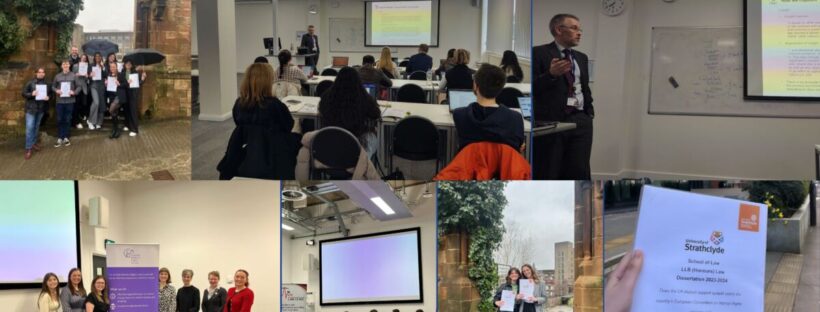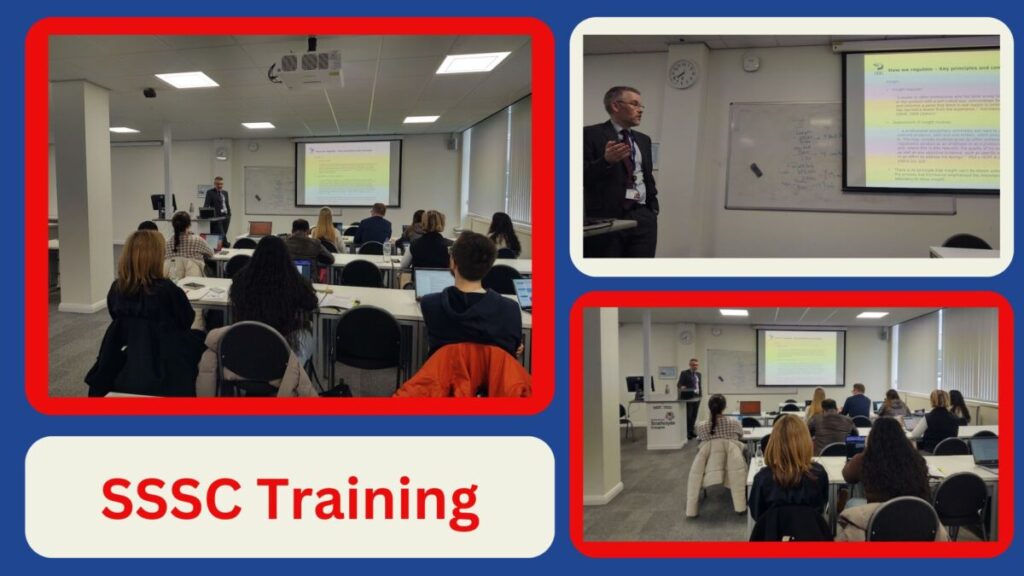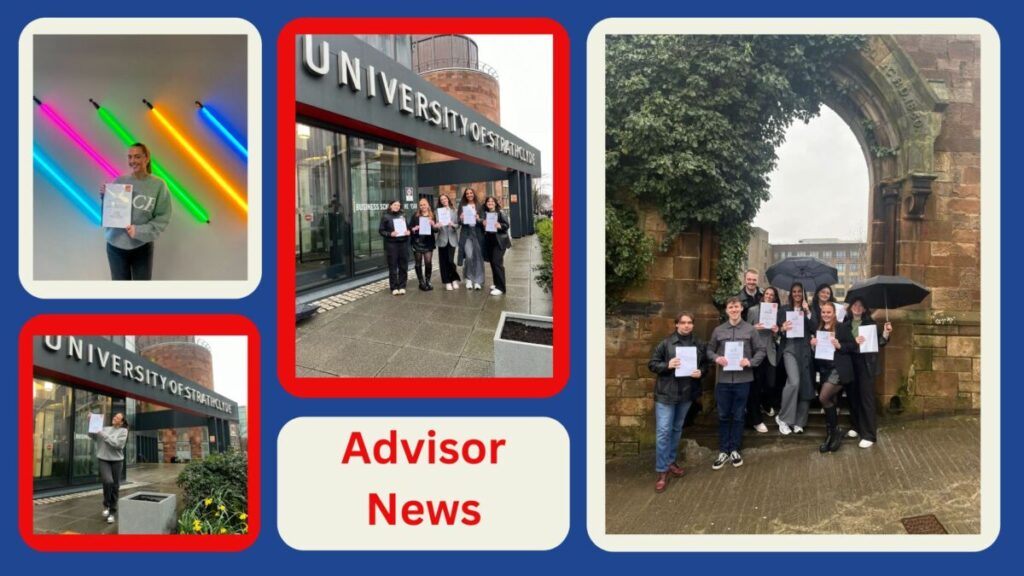Annual General Meeting
The evening was well attended by students, as well as staff, alumni, our law school and members of our wider community, past and present. Highlights from the evening included looking over statistics from the past year, and our traditional AGM Awards!
You can read our Annual Report, which covers the content covered at our AGM, below:
AGM Award Winners:
Best Newcomer – Alison Duncan
Nominees:
Allana Williams, Max Huthwaite, Ailsa Clark, Eilidh Denny, Pamela Isujaf, Callum Butterworth, Harbani Kohli, Amy Vickers, Luisa Beretti and Godwin Kangni-Soupke
Best Project Worker – Saeed Azodazad
Nominees:
Lauren Weetman, Heather Dickson, Natalie Marshall, Romy Gilgallon, Holly Cherry, Corey Beaton, Allana Williams, Rahmah Aslan, Abbie Clark, Harbani Kohli, Emma Campbell, Jamie Winterbottom and Dylan Wright
Best Caseworker – Hannah Stewart & Callum Butterworth
Nominees:
Lauren Weetman, Adam Crainie, Scott Gillanders, Jessica Jayan, Allana Williams and Callum Byers
Best Case – GF (Allana Williams, Pamela Isujaf, Eva Ronnie, Jessica Jayan, Natalie Houston, Amy Vicker & Rahmah Aslan)
Nominees:
PB – Lauren Weetman & Jessica Jayan
DE – Cameron Murphy & Maria Takovchuk
RW – Jasleen Kaur & Amy Vickers
JG – Romy Gilgallon & Cameron McCreaner
The Effie Shaw Award for Dedication – Abbie Clark
Nominees: Jessica Jayan, Corey Beaton, Saeed Azodazad, Hannah Stewart, Natalie Marshall, Ava Ferguson, Lauren Weetman, Laura Nicol and Allana Williams
The Amanda Benstock Award for Compassion – Ava Ferguson
Nominees: Adam Crainie, Natalie Marshall, Pamela Isujaf, Corey Beaton, Saeed Azodazad, Hannah Stewart, Rahmah Aslan, Jasleen Kaur and Jessica Jayan
Best Overall Contribution – Lauren Weetman
Initial Advisor Training
Each year we deliver an extensive suite of training sessions to new recruits to best prepare them for undertaking case and project work within the clinic. The training takes place across 4 distinct training sessions which allows pre-existing advisors and our training team to work alongside new recruits and welcome them into the clinic, whilst addressing any questions they have. Sessions covered the following key areas:
We want to take this opportunity to thank Jessica Jayan and Callum Butterworth for their work in organising and delivering this years’ Initial Advisor Training. We also want to congratulate and welcome all of our new Student Advisors having just completed IAT.

Lord Reed Talk & 60th Anniversary Celebration
By Corey Beaton, Gordon Gow and Natalie Marshall (Student Director Team)
This October has been exceptionally busy for the University of Strathclyde Law Clinic. Outside of our day-to-day casework and project work our Supervisors and Student Directors were delighted to attend the University of Strathclyde Law School’s 60th anniversary ball at the Raddison Blu Glasgow. This inspiring event allowed us all to hear how Strathclyde Law School has shaped the lives of many who have gone on to offer enormous contributions to the Scottish Legal profession, including speeches from Lord Hope, Thomas Ross KC, and Professor emeritus Kenneth Norrie. Overall, this was an incredibly rewarding event to feel part of a community who are all so talented in what they do and who provide encouragement to those striving to enter the profession.
On 28th October 2024, the Law Clinic was afforded the rare opportunity to assist the Strathclyde Law School in hosting the Rt. Hon Lord Reed, President of the UK Supreme Court on our campus to mark not only the Law School’s 60th anniversary, but also the 15th anniversary of the Supreme Court. This event comprised of a lecture titled ‘Why Does the Supreme Court matter for Scotland?’ and was followed by a response from the Rt. Hon Dorothy Bain KC, Lord Advocate for Scotland. Prior to the lecture, there was a coffee reception during which volunteers from the Law Clinic were pleased to run an information stand. Our stand was visited by those such as Lord Hope and former Clinic Supervisory Committee member, Sheriff Ian Miller. As a Law Clinic which offers representation at both the Sheriff Courts and the First-tier Tribunal, it was empowering to hear how valuable representation by students is from those who we aspire to appear before. Overall, this event provided a sense of comfort for our students who are battling imposter syndrome at the thought of representing. Our Student Director team was also on hand to assist in welcoming guests and running the Q&A session that followed Lord Reed’s lecture.
We’d like to offer a massive thank you to Strathclyde Law School for the opportunities afforded to us over the past month.
Associate Membership at Royal Faculty of Procurators Glasgow
The Clinic is pleased to announce that it has joined the Royal Faculty of Procurators Glasgow as an Associate Practice Unit Member. This will allow any current Student Adviser from the Law Clinic to become a member of the RFPG for just £15 per academic year. Members get access to the faculty’s library and to its extensive education/CPD programme, and kept up to date about these events through regular email announcements.
To take advantage of this offer, please contact library@rfpg.org.uk or telephone 0141 332 3593.
About the Faculty Library:
The Royal Faculty of Procurators has maintained a library since 1817 which has been housed at the Royal Faculty building at 12 Nelson Mandela Place in the centre of Glasgow since 1857.
Membership of the Royal Faculty provides access to resources out with the budget of a small firm and can represent a significant saving to a larger firm’s budget.
Members of the Royal Faculty of Procurators in Glasgow are entitled to use the largest law library in the West of Scotland for research, quiet study, for the loan of textbooks, law reports and journals and as a meeting place for legal practitioners.
About the Faculty’s Education/CPD Programme:
The Royal Faculty’s CPD education programme has long been highly regarded as providing excellent training and education, usually free to its members. It’s seminars remain topical and relevant to legal practitioners and are a great way to keep up to date with topics relevant to legal practice and wider legal education.

Law School Prizegiving (13th November)
- Abbie Clark – The Shepherd & Wedderburn Prize for Best Student in Commercial Law (Joint Prize Winner)
- Alison Duncan – The Prize for Criminal Law and Evidence, The Prize for Constitutional Law (Joint Prize Winner)
- Allana Williams – The Prize for Law of Persons (Joint Prize Winner)
- Alyssa Smart – The Prize for Public Law 2
- Callum Butterworth – The Prize for Law of Persons (Joint Prize Winner)
- Gordon Gow – Robson Prize for Outstanding Contribution to the Law School
- Harbani Kohli – Gianna Devin Award for Outstanding Contribution to Student Experience
- Lauren Weetman – The Prize for European Union Law
Case Updates
A long-running employment case which saw two of our advisors representing over a 4.5 day final hearing at the Employment Tribunal earlier this year, was poised for appeal and our client had not yet received the sum awarded as a result. Recently, the appeal was rejected and our client has finally received their award.
In the last couple of months, we have concluded several long-running cases with settlements. In one case, our advisors were prepared to represent at Simple Procedure when the other side increased the sum craved, further delaying the hearing. We have since managed to settle this case with a good result for the client.
Online Handbook
by Hannah Stewart, Online Project Coordinator
Megan and I are delighted to have an updated handbook for the project to give our student advisor a hand in completing online cases. It features the basic structure of the project, but also has style tips, research links for where to start for different types of cases, and even quite a few stock responses and examples to make writing the basics much easier.
The handbook can be found here:
(3) Projects > (3-9) Online > (3-9-4) Online Response Folder I-Drive > Online Project Handbook 2024-2025.




















